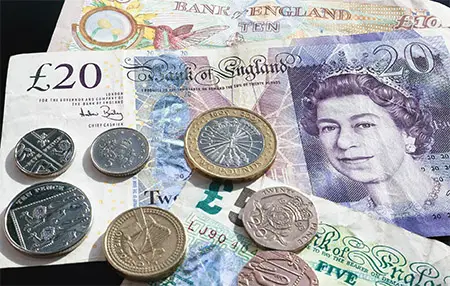04.08.2016
How Much Tax You Will Pay in 2016/2017
Personal AllowanceWhen it comes to paying tax on your income, you won't have to pay tax on all of it. In the tax year 2015/2016 the personal allowance amount was at £10,600 although has risen to £11,000 for the tax year 2016/2017. This money is completely tax free. If you earn below the personal allowance amount you will not pay any tax on your income at all, although you will still have to pay for your National Insurance Contributions.
Tax Bands and Income TaxThe United Kingdom Government updates the tax bands each tax year, meaning that if you have a set salary then the amount of tax you pay will differ each year. The tax bands for the tax year of 2016/2017 are as follows:
These bands do not include your entire income. For example, if you were to have an annual income of £35,000 then you would have your personal allowance deducted from that before any tax is taken. This does not include your National Insurance Contributions.
Personal Savings and Savings IncomeIn the past, before the 6th of April 2016, any savings interest that was made had 20% of tax dedicated from it, and furthermore if you happened to be a higher-rate taxpayer then you had to pay an additional 20% of tax on top of that. If you were an additional rate taxpayer, then you would have had to pay a further 25%.
Dividend Income and AllowanceReferring back to the changes that began on the 6th of April 2016, even more changes are being made across the financial ground. Dividend Allowances will be altered in order to make it that the first £5,000 that you receive in dividends from your investments will be completely tax free. Any amounts above this result in the taxes found below.
Capital Gains TaxStarting on the 7th of April 2016, changes will also be made to capital gains income. A capital gain is the profit that you have made from either the sale of a property, or an investment that you have made. You can find the taxing percentages below.
Although the standard Higher Rate taxing is 20%, this may differ depending on the taxable gains that are made from residential property sales profit.
Lowered Tax AmountsAs previously said, tax can be delicate and it can be complicated at times too. There are several circumstances which would allow an individual, or married couple, to pay less tax. This may be down to them being eligible for Marriage Allowance, Disability Allowance, or Job Seekers Allowance. These are allowances that can contribute to the amount of tax that you pay on your income.
|
 GoodCalculators.com
A collection of really good online calculators for use in every day domestic and commercial use!
GoodCalculators.com
A collection of really good online calculators for use in every day domestic and commercial use!
- Salary & Income Tax Calculators
- Mortgage Calculators
- Retirement Calculators
- Depreciation Calculators
- Statistics and Analysis Calculators
- Date and Time Calculators
- Contractor Calculators
- Budget & Savings Calculators
- Loan Calculators
- Forex Calculators
- Real Function Calculators
- Engineering Calculators
- Tax Calculators
- Volume Calculators
- 2D Shape Calculators
- 3D Shape Calculators
- Logistics Calculators
- HRM Calculators
- Sales & Investments Calculators
- Grade & GPA Calculators
- Conversion Calculators
- Ratio Calculators
- Sports & Health Calculators
- Other Calculators
 Taxes are a delicate subject to deal with. While most people are employed by a company who take care of their taxes for them, there are a lot of people who must file their taxes themselves as well as pay their National Insurance Contributions (NICs) without the help of a company.
Taxes are a delicate subject to deal with. While most people are employed by a company who take care of their taxes for them, there are a lot of people who must file their taxes themselves as well as pay their National Insurance Contributions (NICs) without the help of a company.